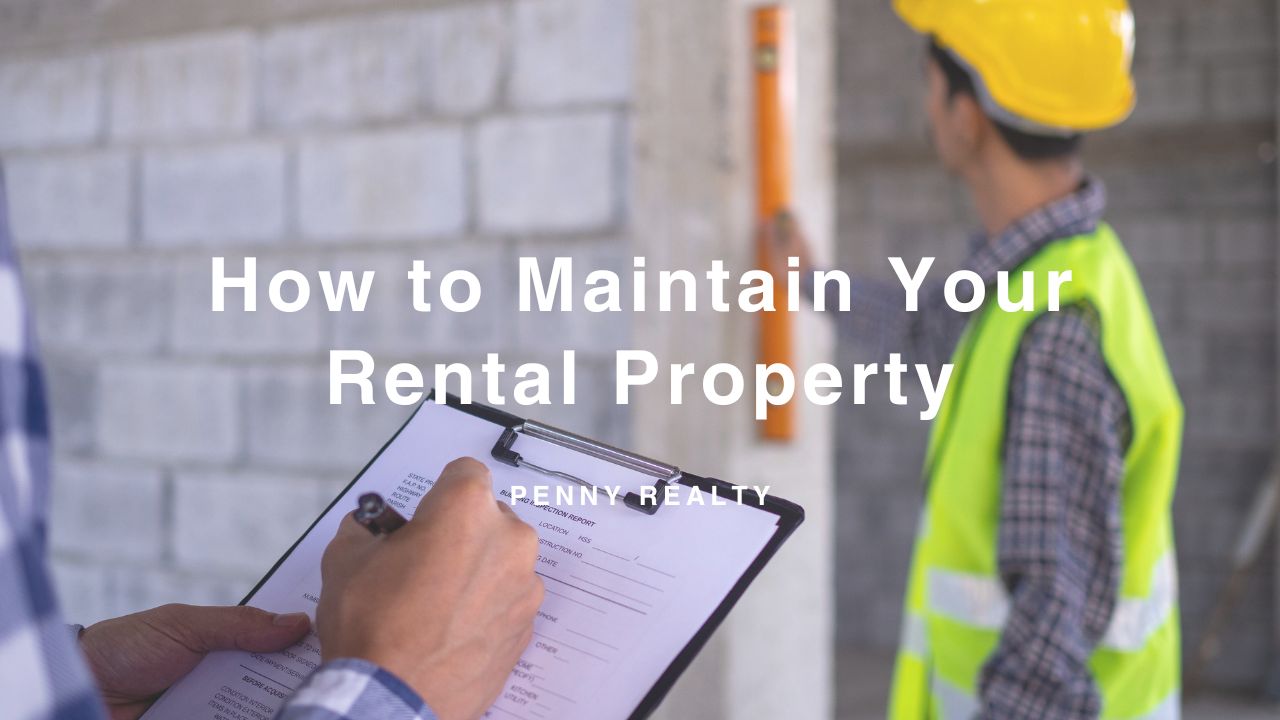Property maintenance is crucial for long-term success after buying a property. A well-maintained property sends a clear message to potential renters that you are a responsible landlord who cares about their living environment.
Rental properties typically require more maintenance than single-family homes due to the higher wear and tear from residents. Regular upkeep not only preserves the value of your investment but also significantly increases your chances of attracting and retaining quality tenants.
This means being proactive in addressing issues before they escalate, ensuring that your property remains safe, comfortable, and appealing.By following these guidelines, you can enhance tenant satisfaction, reduce turnover, and ultimately achieve greater success in your landlording journey.
Know Your Maintenance Responsibilities
Even before renting out your property, familiarize yourself first with your responsibilities. This way, you’ll know whether or not it’s something you can do. Or, hiring a property manager can be a worthwhile option.
You must rent out a property that meets the state’s basic health, safety, and building codes. This means ensuring it has the following:
Enough trash Bins: Keeping a rental property in sanitary condition is key to maintaining its habitability. And while it’s a tenant’s responsibility to do so, you must ensure they have adequate trash bins.Depending on your local laws, you may need to provide an enclosure around the bins.
Building codes: Ensure the home complies with all relevant building codes. Among other things, this means ensuring the home has proper plumbing, electrical systems, and is free of pest infestations, asbestos issues, mold issues, and lead paint issues.
Maintain common areas: You must ensure common areas have appropriate lighting, safety, and cleanliness.
Respond to Repair Requests on Time
Savvy landlords want to ensure that repair and maintenance requests from tenants are addressed promptly. In Pennsylvania, landlords must make necessary repairs within a “reasonable” amount of time after proper notification from tenants.
Failure to do so can lead to certain repercussions. The tenant can cancel the lease agreement without penalty. They can go to court and obtain an order to force you to carry out the repairs. Tenants can also withhold rent payments or make the repairs themselves and deduct the costs from rent.
Educate Your Tenants on Their Maintenance Responsibilities
Tenants also have certain responsibilities when it comes to maintenance. However, they may only be able to do them if at all they know them.
Under the Pennsylvania Landlord and Tenant Act, tenants are responsible for the following.
Keeping the unit clean and habitable
Removing all hazards and garbage
Reporting issues to the landlord within a reasonable time
Allowing landlord entry
Not causing negligent property damage
Follow all building and housing codes
Prevent excess moisture accumulation which may lead to mold growth.
Ideally, include these responsibilities as part of the clauses in your rental agreement. You can reach out to a reputable local property management company to help you draft a solid agreement.
Inspect The Unit Regularly
Rental inspections are key to your success. They can help you identify potential maintenance issues early on. This will help prevent minor issues from becoming serious and potentially costly to fix.
Inspecting your property regularly can help you keep an eye on the tenant’s compliance with the lease terms. During one of your inspections, you can check to see whether the tenant has caused property damage or keeping an unauthorized tenant, among other things.
During these inspections, you must ensure you’re always fair and respectful to the tenant. And this includes notifying the tenant beforehand to protect their privacy.
Carry out Seasonal Maintenance
Pennsylvania experiences the changes of all four seasons. This brings about unique maintenance challenges depending on the season.
The following are some of the tasks that seasonal maintenance may include. You can negotiate with your tenants on these tasks.
Spring
Spring is the perfect time to refresh your property by addressing these essential maintenance tasks:
Clean gutters and downspouts
Check the exterior walls for any signs of moisture
Inspect the roof for any damage
Trim trees and shrubs
Inspect the functioning of the appliances
Check for pest infestation
Summer
To keep your property in top shape during the summer months, think about the following task:
Mow the lawn regularly
Clean the outdoor grills and furniture
Water the plants as needed
Clean the air conditioning filters
Check for any signs of mold growth
Fall
As the weather cools down, it's important to prepare your property for the fall season by completing essential maintenance such as:
Inspect and clean fireplaces and chimneys
Rake and clean up leaves and debris
Cover any outdoor furniture for protection
Check for any signs of a pest infestation
Inspect and service the heating systems
Winter
Winter time can be dangerous consider hiring a professional for any of the following maintenance issues:
Remove ice and snow from driveways and walkways
Insulate pipes to prevent them from freezing
Check for any foundation- or roof leaks
Inspect the heating system regularly
Inspect the roof for snow buildup
Conclusion
Successful landlords prioritize rental maintenance. Specifically, it is a key recipe in attracting and retaining quality tenants, as well as in the preservation of property value.
If keeping up with maintenance issues seems daunting, please consider hiring an expert property management company. Penny Realty, Inc. Property Management is a great choice! We provide quality property management services to rental investors in the San Diego area!



